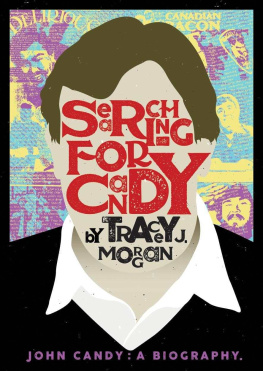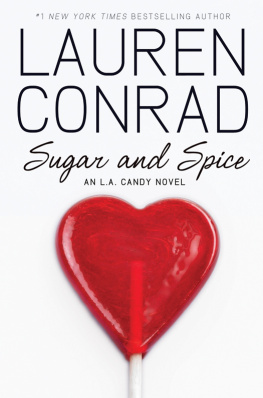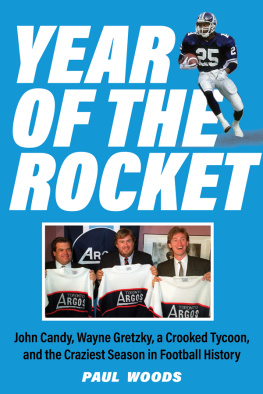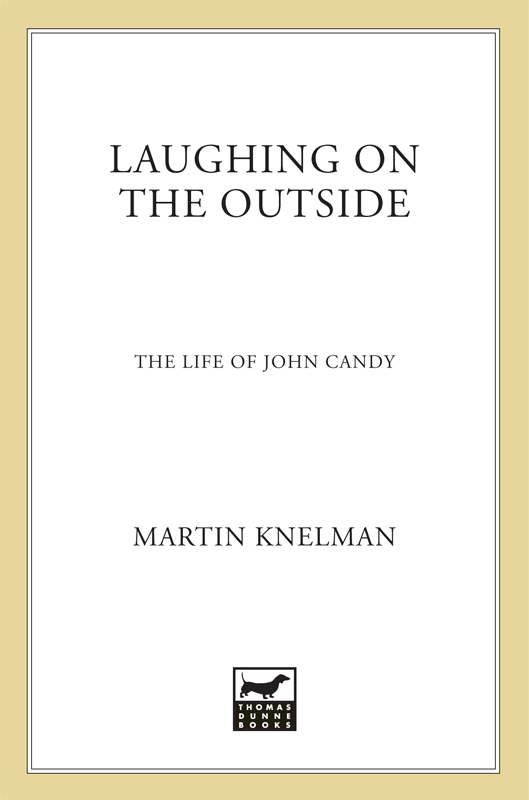Contents
Guide

The author and publisher have provided this e-book to you for your personal use only. You may not make this e-book publicly available in any way. Copyright infringement is against the law. If you believe the copy of this e-book you are reading infringes on the authors copyright, please notify the publisher at: us.macmillanusa.com/piracy.
Contents
For
Bernie, Josh and Saramy own private comedy group
and
for two people who took personal generosity
and professional loyalty to astounding extremes,
Christina McCall and Helga Stephenson
Introduction
T HE G ODS O F C OMEDY
When theyre really on, great comics light up the space around them. They emit sparks; they give off a glow; they break new ground. This is a form of artistry expressing ecstasy, like the achingly precise steps of a brilliant dancer or the impossibly extended riff of a virtuoso jazz saxophonist. Theres an element of sheer intoxication.
Right from the start, John Candy had the stuff that separates the great ones from comedians who are merely talented and funny. Second City founder Bernard Sahlins spotted it the instant Candy was prodded into auditioning at a Toronto church in 1973. At the age of twenty-two, the already pudgy young performer was a budding Falstaff of the baby-boomer generation. His skills were raw and undeveloped, but it was clear the gods of comedy had smiled on him.
They had granted him exuberance, ebullience and crackerjack reactive timingand enough pain to create his need to propel himself into an alternative universe. As well, the gods of comedy had conferred on Candy a likeable sweet shyness, giving his persona a contrapuntal courtliness. It was as if Candys rowdy comic spirit was kept in a special case, and withheld by a delayed-release mechanism.
In small cabaret theatres in Chicago, Toronto and Pasadena in the mid-1970s, audiences took an immediate shine to John Candy. Then from 1977 to 1983, he broke through on the innovative, high-spirited satiric TV series SCTV. Surrounded by several of the most dazzling comedy performers around, Candy was the one audiences chose as their special favourite.
Candy appeared to be on the brink of even greater success in the movies, but Hollywood played a dirty trick on him. It bequeathed to him the wealth and fame he had always dreamed of, but except for a few occasions mostly deprived him of the chance to be as funny and creative as he had been on TV. Of the forty-plus movies he appeared in, only a handful could be recommended to civilized, intelligent adults.
Yet for Candy fans, even a few triumphant moments in an abominable movie could be cause for elation and hopeproof that he still had that spark, in spite of everything Hollywood was doing to squeeze it out of him.
* * *
Candy knew intuitively that to get into comedy heaven you have to let goand speed beyond the bounds of conventional behaviour and good taste. He loved the particular state of comic grace that can be reached only by becoming wild and crazythrowing out the restraints parents, teachers and other authorities have spent years instilling.
On the road to a successful career in comedy, it helps if youve never quite become a grown-up. Its even better if you have a talent for misbehaviour. In those respects, Candy aced the entrance exam.
At its highest level, comedy is a belief system that sustains its followers through endless days of petty woes. Buster Keaton gave thrillingly pure expression to that credo in Steamboat Bill, Jr. Charlie Chaplin had it in The Gold Rush. Before he faltered into strained seriousness, Woody Allen reinvented the form for modern urban neurotics. Richard Pryor broke through boisterously with his first concert film. Robin Williams occasionally takes us to that higher place. And most recently, Eddie Murphy in The Nutty Professor relieved the junky tedium of current movies with his gleeful portrayal of an entire crazed family at dinner.
Within the realm of Candy and his peers, a perfectly executed comedy routine is mood-elevating and orgasmic, as sure to induce light-headedness as champagne. It delivers us to that state of consciousness where the entire world can bliss out together on laughter. It offers a more natural high than dropping acid or snorting cocaine. Best of all, it fills us with the grandest of all illusionsthe confidence there is nothing we cant overcome as long as we savour the humorous aspects of misery and misfortune.
* * *
This is an unauthorized biography, and in the course of researching and writing it, I have encountered some people who apparently believe that loyalty to John Candys official memory entails a shroud of secrecy. It became obvious to me that just as Candy during his life was imprisoned by the myth of his own affability, so in death he was in danger of being imprisoned by the myth of Saint John.
Below the surface of these myths, I found that the real John Candy was infinitely more complex and fascinating. That is the one I have tried to portray. In my view, true loyalty to John Candys memory should entail understanding and embracing the facts about his life, not covering them up.
And if were honest with ourselves, I think we have to admit that it isnt testimonials to his virtue that feed our curiosity about John Candy as a performer and a person. Rather, its the promise of raucous laughter, clamorous good times, and a hair-raising ride on the Hollywood roller-coaster. Candys gift to the world was not saintliness but his talent for creating a disturbancein the most hilarious, sweetly nervous way.
In the course of reading other biographies, I have occasionally sensed that special horror that occurs when the writer discovers things he would rather not have known about the subject. I am happy to say that I did not have this experience. Though I found many sad and dark elements in John Candys life, I never stopped liking him.
Neither did Candys friends, although sometimes their love for him resulted in tension and frustration as he ignored their need for him to take better care of himself.
The John Candy I came to know was a man of tremendous appetites, given to excess in every aspect of life. He was excessively talented, excessively funny, excessively nice and excessively generous. But when he ran into problems, he became excessively resentful, excessively depressed, excessively curmudgeonly and excessively unwilling to face painful truths. He ate too much, drank too much, smoked too much, stayed up late too much, partied too much, and rarely knew when to quit.
There were even periods when things got so bad that John Candy stopped being lovable. John Candy was two people, says a Toronto TV producer who saw him at his worst. There was the John Candy of myth that everyone wanted to believe inwarm, friendly, happy, generous, loved by all. Then there was his evil twin that nobody wants to talk aboutinsecure, paranoid, bitter and mean.
Few people who knew Candy well would make such a harsh judgment, but some would say that if only Candy had done this or that, or hadnt done something else, his life need not have been cut short at the age of forty-three. What I came to understand was that if he had been a person of moderation, he would not have been John Candy. Lack of moderation was an integral part of the Candy package.
* * *
At the heart of John Candys comedy lies his fierce determination to rise above grim reality and find a way to have a roaring good time anyway. It is perhaps most memorably expressed in a TV sketch that gives him the role of a pitchman for dance lessons, with a Spanish costume and accent.









